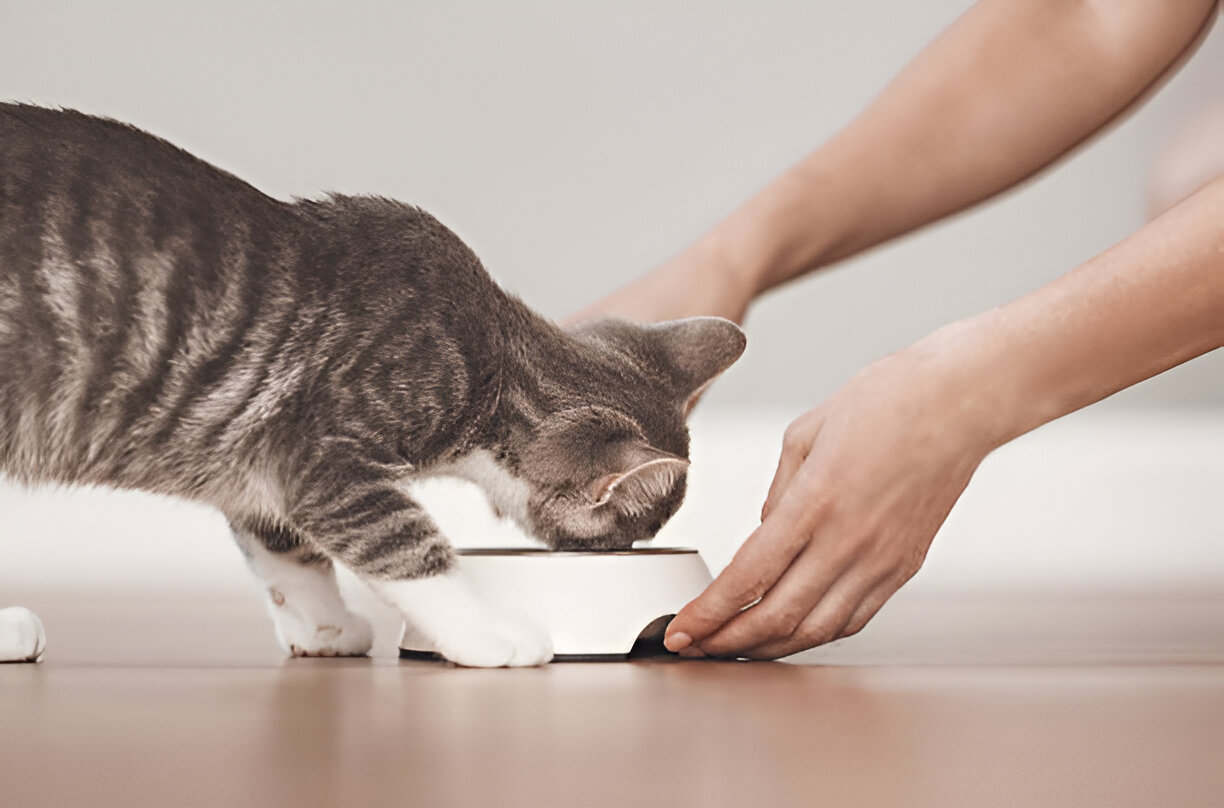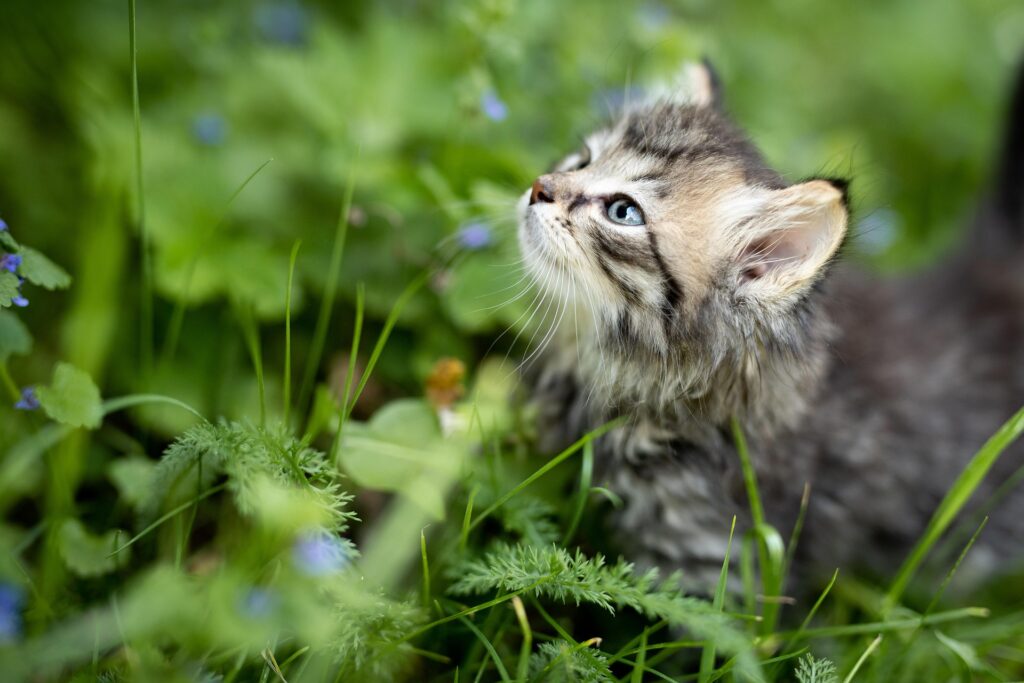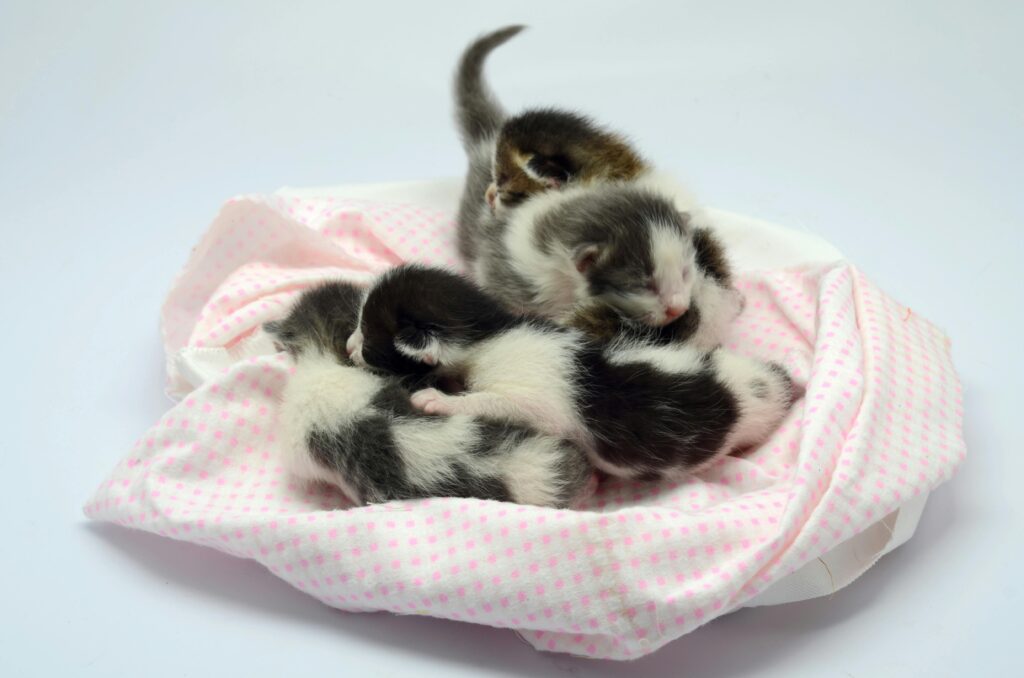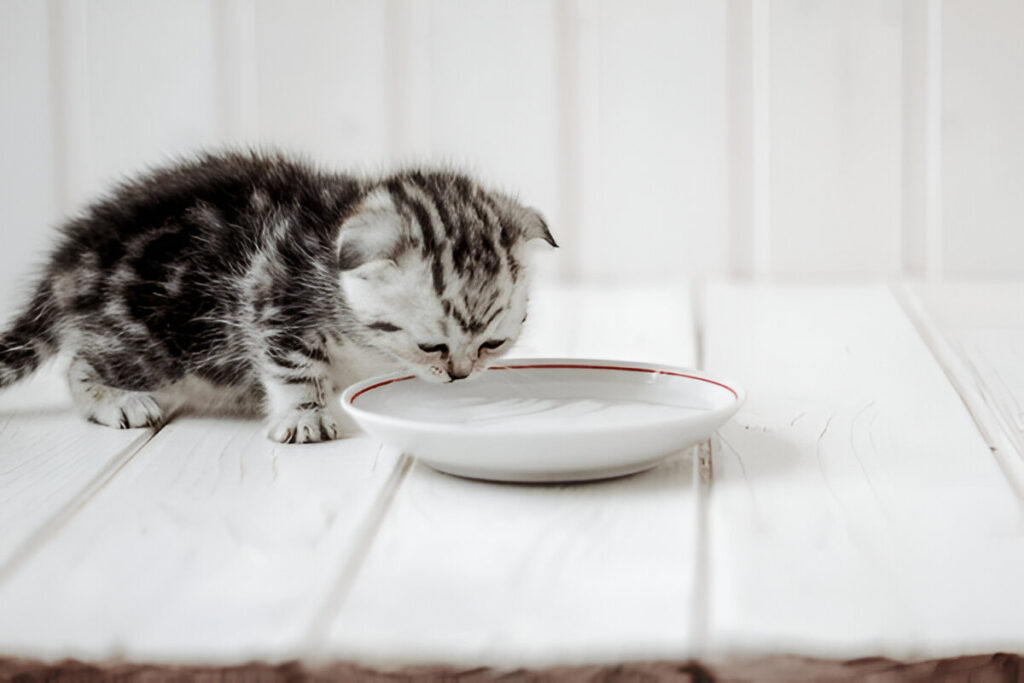Can kittens eat beef tendons and other fully beefed-up meat products?
The simple answer is yes. Kittens lean towards gumming and chewing on things rather than biting where the food source consists of tendon-based meat products. But then again, kittens go through a phase known in the crib as milk teeth where disaffected baby teeth begin to erupt and that urges the kittens to bite into things and consume anything. Let us head over to discover the meat feeding guidelines with a deep incursion into its definition.
Let us summarize everything in simple:
A kitten starts to develop a broad jaw from the age of four weeks, forming its adult mouth which will be made for shredding meat. Adult teeth usually start developing where the gumming-shredding cycle is retained that stretches all the way till the age of six months onwards. So in theory, during the first six months of a kitten’s growth stage, chomping or shredding meat should be treated as a mandatory standard!
The Unique Food Requirements of Kittens
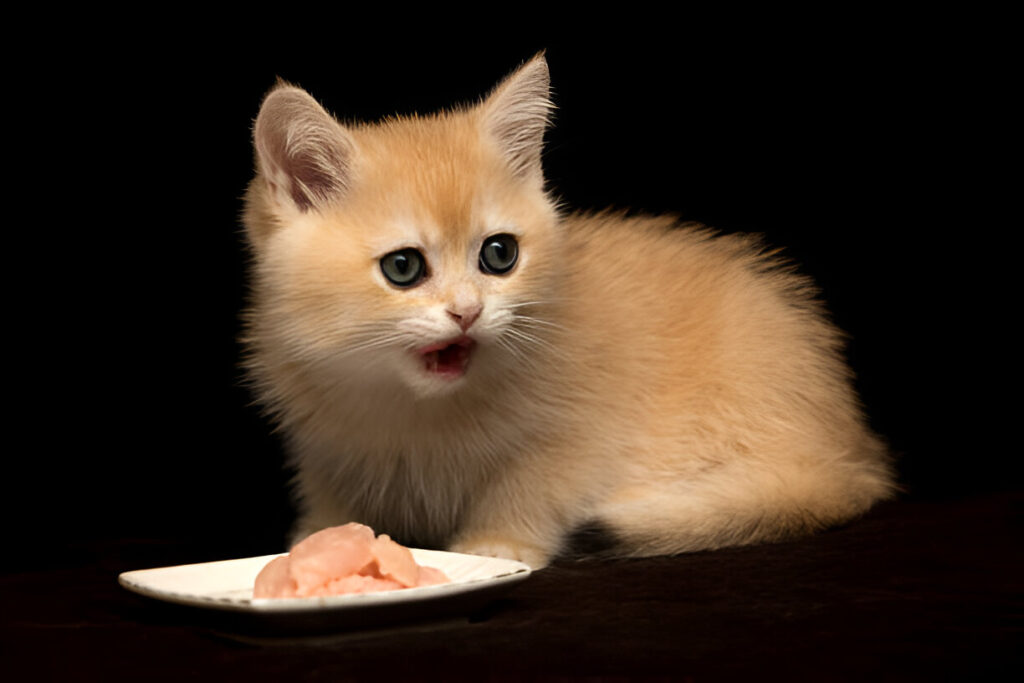
Kittens have special requirements when it comes to food when compared to a fully grown cat. In fact these requirements need to be met in order for the kitten to grow healthily. Some of the noted food requirements of kittens are:
Protein Rich: Kittens require high protein requirements during their growth period. Meat based proteins are a must have as these aid in muscle development.
High Fat Content: Kittens are active and require high energy, in order to ensure their daily activities.
Vital Vitamins and Minerals: Calcnium and phosphorous are an absolute must for kittens to grow strong bones. Kittens also require Vitamins like A, D, and E to lead a healthy life.
DHA: This omega 3 fatty acid is important for strong brain and eye development of kittens.
What is Beef Tendon?
Beef tendon is a connective tissue that is present in cattle and binds connective tissues and bones together. It is considered as a staple in many cultures due to its high protein content and chewy nature. Additionally, beef tendon is rich in collagen, which helps to maintain healthy joints and skin elasticity.
Advantages of Beef Tendon in Feeding Kittens
Giving beef tendons to kittens may help them in few ways such as:
High Protein: Beef tendon is a great source of protein, which is an important nutrient for muscles and growth in kittens.
Joint Support: Beef tendon contains collagen which may aid joint mobility useful for kittens who are active.
Teeth Hygiene: Kittens like chewing on beef tendons which aids teeth and support their hygiene and lowers tartar and plaque build up.
Chewing on beef tendons could make kittens bored and so this could aid their mental health in such cases.
Disadvantages of Beef Tendon in Feeding Kittens
Some risks relate to beef tendon, although they can give a lot of good benefits to your kitten like:
For kitten, beef tendon may be a choking hazard since it can be strong and chewy. That’s why supervision is required when kittens chew on beef tendon and it needs to be appropriately sized.
Due to chewing beef tendon, some kittens might not be able to digest it fully and this may upset their gastrointestinal systems. To avoid this, the beef tendons must be fed gradually and very carefully while observing how the kitten reacts.
Nutritional Imbalance: Kittens shouldn’t be fed solely on beef tendon. This should be incorporated into a full nutritious meal.
What is the procedure to safely serve beef tendon to a kitten?
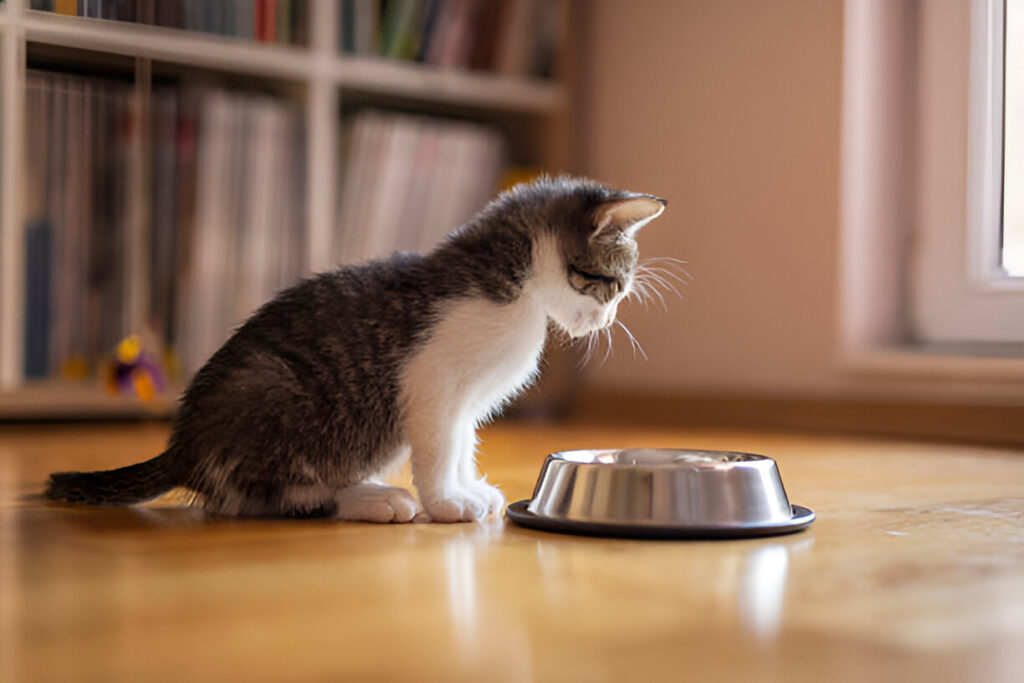
If you would like to assist your kitten in eating beef tendon, please follow the safety guidelines listed below to do so in a safe manner.
Choose High-Quality Beef Tendon: When purchasing beef tendons, make sure they are fresh from reputable suppliers. Avoid beef tendons that are highly processed or contain additives.
Cut into Appropriate Sizes: Always remember to chop beef tendons into smaller pieces to lessen the chances of choking. Supervise your kitten while they are chewing.
Introduce Gradually: Always remember to introduce beef tendons into a kitten’s diet slowly starting with small amounts. Monitor the kitten’s reactions and if there is no problem then you can continue with it.
Balance Their Diet: Tendons of beef should be supplemented with additional nutrients as a balanced diet. A complete and balanced diet that supports them should be given to your kitten.
Myths about Feeding Beef Tendon to Kittens
Setting the record straight on the feeding of beef tendon to kittens, there tend to be some myths around this meal. Below are some of those myths and its truths:
Myth: Beef tendon is not safe for kittens. Fact: Beef tendon can be safe for kittens but only in moderation and if introduced slowly. Close monitoring of kittens while they chew is essential, and aiming to cut the meat into small chunks is recommended.
Myth: Beef tendon can be considered as a supplementary Diet for normal kitten food. Fact: Beef tendon can never be a substitute to a regular kitten food, it should be consumed along with other essential nutrients to ensure a healthy balance.
Myth: All kittens can easily digest beef tendon. Fact: Some kittens do have tough time digesting a beef tendon and it can upset the stomach, therefore it is highly recommended to introduce beef tendon slowly into the diet plan.
The Importance of Kittens’ Water Intake
Just like adult cats, also make very sure your kitten consumes ample amounts of water. Make sure your kitten has access to clean and fresh water at all times; a wet kitten food diet would also aid hydration as it holds more moisture than dry diets.
Regular Visits to the Vet Clinic: Why They are Necessary
Regular evaluation by a veterinarian is a key component of ensuring your kitten is developing in a healthy manner. Your veterinarian can assist and guide you in areas such as nutrition as well as on any future health issues that may arise.
Play and Exercise: A Great Way of Bonding
Physical and mental growth for kittens can result from play and exercise. Offering a wide range of toys and activities will keep your kitten active and engaged. This is very beneficial to the kitten’s growth and development.
Socialization: The Basis of a Good Kitten’s Character
Socialization is crucial for kittens: Otherwise, growing up sociable and well-adjusted adults may be difficult. Exposure of kittens to various stimuli, whether it’s different people and places, or other animals is necessary. It is helpful in reducing fear and anxiety while promoting positive behaviours.
Spaying and Neutering: Why it is Necessary to Do
Spaying and neutering will be a good of reducing the number of kittens and avoiding some health risks. These methods can decrease the chance of getting some cancers as well as some behavioral problems. Please speak to your veterinarian in order to help determine what the best timing for spaying or neutering your kitten is.
Final Thought: Maintaining Kittens’ Health and Well-being
To summarize, it is advantageous to incorporate beef tendon in the diet of kittens as long as they are precise size and cut and it’s strictly overseen at the time of eating. In any case, supervision plays a role in making it a safe food option since accidents like choking or other kinds of injuries can occur. In turn, beef tendon should be consumed in moderation and in conjunction with other dietary requirements.
Questions and Answers
Q: At what stage can kittens start consuming beef tendons? At what age is it generally appropriate to introduce high tendon beef cuts to a kitten?
A: Yes, beef tendon is acceptable once the kitten starts chewing which is generally around the age of 8-9 weeks. When starting to consume, it is suggested to feed in small portions and then work up to moderate amounts fully supervised to alleviate the likelihood of unwanted injuries occurring when both chewing and eating.
Q: Why is beef tendon considered a beneficial dietary component for kittens?
A: Depends on the level of activity of a kitten, beef tendon enhances overall growth and muscle development as it is a great protein source. Moreover, the collagen itself is beneficial for joint and mobility enhancement for kittens while also promoting good dental hygiene when chewing on and consuming them, so overall it’s a great supplement for untensioned bebes.
AQ: What potential danger comes with giving beef tendon to kittens?
A: A few of the potential dangers that beef tendon presents include choking, digestive issues and even malnutrition. With this said, it is best to observe your kitten during the gradual introduction of beef tendon in terms of what aspects may be suitable.
Q: What steps can I take to make sure that feeding beef tendon to my kitten is safe?
A: When introducing beef tendon to your kitten’s diet, make sure that it is of good quality and cut it into small pieces that are easy to chew. Additionally, combine it with your kitten’s other nutrients and slowly feed the tendon to them.
Q: In order to ensure that my kitten is healthy, how many times do you think I should feed them beef tendon?
A: When it comes to beef tendon, moderation is key, use it along with other nutrients. Make sure to follow up with your veterinarian to seek the best recommendation to ensure that beef tendon is worked into your kittens feeding schedule properly.
Lastly, whenever giving roating kittens beef tendon or any other food, the focus should remain on achieving a well balanced diet that can fulfill the kittens needs.
Other than that, make sure that you provide the necessary attention and care.
Yuns Legdm is a passionate advocate for pet care and the founder of this website, dedicated to providing valuable information for fellow pet lovers and veterinary professionals worldwide. With a deep love for animals, Yuns created this platform to connect passionate pet owners with expert insights from veterinarians around the globe.
This website grows with you—the passionate pet owners and veterinary experts—creating a trusted space where knowledge, experience, and love for animals come together. Whether you’re seeking advice on pet health, nutrition, or general well-being, this platform is here to support you on your journey of responsible and loving pet care.

